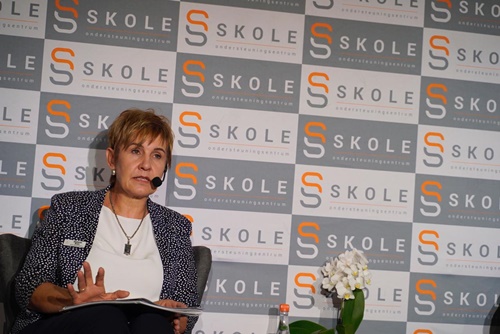By Melanie Buys
On Thursday 15 June, thousands of parents of prospective gr. Grade 1 and 8 learners in Gauteng are applying to try to secure a place for their children in good schools in 2024.
Most schools’ open days are already over, but regardless of how proactive parents (and schools) try to act, every year they have to wait anxiously to find out where their child will go to school next year. Everything depends on Gauteng’s education department, which must give the final green light for this. This, despite the Schools Act of 1996 which gives school governing bodies the right to determine and apply the admission policy.
The very Schools Act which gives each school governing body the right to determine and apply admissions policy, gives the province’s MEC of education the responsibility to ensure that there are enough schools to meet the province’s educational needs. And, what is happening in Gauteng?
Since 2012, the number of learners in Gauteng has grown to more than 600,000. The MEC of education in Gauteng, Matome Chiloane’s energetic predecessor, Panyaza Lesufi, promised hundreds of new (much needed) schools, but today there are only 25 more public schools than in 2012.
Afrikaans schools have the same challenge: the Solidarity Research Institute shows a large increase in Afrikaans speakers in Gauteng, but since 2012 there has been 69 less Afrikaans schools in the province. By 2022, the average number of learners in the remaining 246 Afrikaans public schools has consequently risen from 590 learners per school to 970 learners per school. There is also a large increase in the number of independent schools in Gauteng, but teaching in these schools is mainly in English. This leads to the fact that there are currently 36,000 fewer learners than 10 years ago who can go to school in Afrikaans, despite many more Afrikaans people in Gauteng! This causes a large shortage of Afrikaans schools in the province.
The ANC’s attempts to hijack good Afrikaans schools can be thwarted by dedicated parents who apply once the online registration system opens. If schools are already full of Afrikaans applications within the first day or two, there is no need to defend themselves against the urge to take English classes. “What is one English class now if we have four Afrikaans classes?”, many people ask. Unfortunately, figures in the last 10 years show that it rarely stays with one class group and that parallel medium schools often completely anglicize within a few years. Conflict arises as a result of a lack of resources.
Quality education is an indispensable resource that can secure a community’s future. First in line, first in place – first come first served – is fortunately still a recognized legal principle. The brisk registration of gr. 1s and 8s are the simplest way to keep Afrikaans schools Afrikaans, thereby ensuring quality education for your child.
Tomorrow (Thursday 15 June) is D-Day, parents must be ready!
Read more: https://skole.co.za/gauteng-toelatings-2024/
- Melanie Buys is head of development at the Solidarity School Support Center (SOS).








